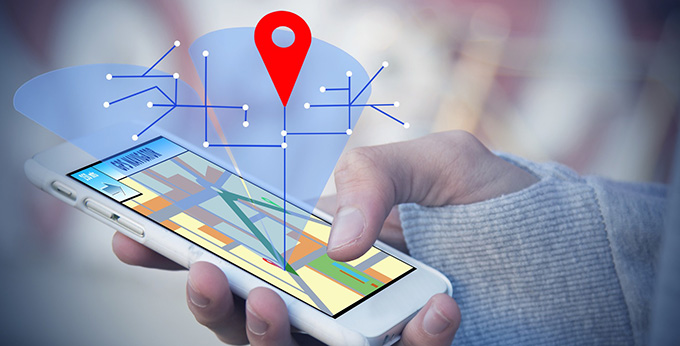
The safety of loved ones, especially during their childhood, is one of our main concerns. Technology has proven to be a valuable resource to address these concerns and provide greater peace of mind to parents or relatives in charge of their guardianship.
In recent years, different geolocation applications have emerged that allow us to know the location of children and adolescents in our care and even track them in real time , which can be particularly useful in emergency situations.
Are they all benefits? What is the counterpart of always being watched or controlled by an adult? What role can its use have in the training process of an individual?
Trust: a pillar of the filial relationship
The ability to geolocate a minor at all times can be essential in emergency situations, and the use of these applications can promote open intergenerational communication, promoting safety and even the establishment of limits and responsibilities.
But trust is a fundamental pillar in the relationship between parents and descendants. Constantly knowing the location of our sons and daughters through a geolocation application can undermine this confidence and even the autonomy of a teenager, who may think that her parents do not trust him and control him.
It can also involve a violation of the privacy of minors.
Educate, do not stigmatize
Instead of demonizing the aforementioned applications, it is possible to focus on education and responsible use of these tools. In the context of the safety of youth and children, these applications can bring significant help, but it is essential to understand how to use them ethically. To do this, we must take care of:
- The communication. Before installing one of these applications, it is crucial to have an open conversation with minors, explaining what it will be used for and establishing limits.
- The consent. It is essential to negotiate with the minor their consent to be geolocated; This will foster trust and responsibility.
- Privacy. Respecting privacy is essential; Use the application only when necessary, that is, if there are indications of potential risk or danger.
- The education. Alerting minors about digital security and online threats is a crucial aspect. Geolocation is one more tool in your security arsenal in terms of the new ways of relating that the connected society offers.
The difficult balance between privacy and security
In a world where personal information has become a valuable asset, the question arises as to whether constant monitoring through these applications is an invasion of our sons and daughters’ privacy.
The digital age has redefined privacy in ways we would not have imagined a few decades ago. Personal information is shared online daily and people need to be increasingly aware of their digital footprint from childhood.
Geolocation can expand this ethical debate by raising questions about the control and ownership of location information: Who owns my location data? Can third parties use it freely? Do we know what we accept when we install an application? Do we read the fine print?
Before installing
It is important that we become aware of our responsibility as informed users when installing a geolocation application and consenting to the processing of our data.
On the one hand, we must analyze in which country and how the data will be stored and what impact the storage location has on privacy, access and transfer of data for various purposes. On the other hand, it is important to know in detail the ability of our terminal’s operating system to adjust and, where appropriate, block applications’ access to geolocation data .
When you click “accept all” we are giving up all our data, putting ourselves at risk of external attacks on the companies that store it. It is our responsibility to know what happens to our data (and that of our loved ones) and how we can block our mobile applications if necessary.
Always with consent
In seeking a balance between protecting children and respecting their privacy, adults are tasked with teaching the risks and rewards of technology, and ways to protect privacy online. And to do this, there is nothing better than starting with ourselves: geolocation applications violate the privacy of minors, so it is necessary to have the minor’s consent.
In this last aspect there are discrepancies, since the cell phone itself can be considered the material property of the parents and the Civil Code in Spain establishes, for example, that the property of a minor can be managed.
Even so, the legislation specifies that a minor has “the right to honor, personal and family privacy and one’s own image” (Art. 1 of Organic Law 1/1982 ) and that “parental authority will always be exercised for the benefit of the children, in accordance with their personality” ( Art. 154 of the Civil Code ).
Geolocation applications must, of course, comply with demanding regulations in this field. App developers and the companies that offer them must take responsibility for protecting user privacy, and ensure compliance with existing privacy laws regarding location data.
Without blaming technology, or criticizing the legitimate desire of parents to protect minors, a consensus must be sought between both that promotes the use of these tools in an ethical and responsible manner.
Author Bios: Pedro Arias Sánchez is Professor in Geotechnologies, Henrique Lorenzo is a University Professor in the area of Cartographic Engineering and Joaquín Martínez Sánchez is Professor in Geographic Information Systems all at the University of Vigo
